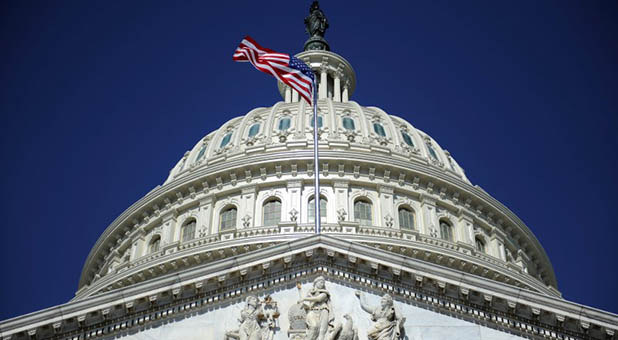Washington’s Most Dangerous Period Could Be About to Happen
The lame-duck session is the most dangerous period in the nation’s capital that you’ve never heard of.
There are nearly two months between Election Day in November and the swearing-in of the newly elected Congress in January. This period is known as the lame-duck session, because many of the voting members won’t be returning due to defeat or retirement (hence, they’re “lame ducks”).
Why is it dangerous? Because those lame ducks have no oversight or accountability, and the members who are returning have just won re-election—and won’t have to face the voters for two or six more years.
It wasn’t always this way. Lame-duck sessions used to be a quirk of history, only employed to address pressing issues or unexpected emergencies. However, they are now routinely used by both parties to schedule difficult or controversial votes after the election.
In the minds of congressional and party leadership, this delay tactic accomplishes two valuable things. First, it pushes meaningful votes until after the time when voters can hold the members accountable. This allows party leadership to protect their vulnerable members at the ballot box. Are you a voter who wants to know where your member of Congress stands on critical issues? Too bad! You have to vote them into office to find out what they really think.
Second, it means that all votes become “must-pass,” because the end of the year is suddenly approaching. Deliberation on major legislation—the sort that could have been (and should have been) considered earlier in the year—is now crammed into a few short days because Congress is up against a cliff of its own making.
The existence of the modern lame-duck session is troubling for several obvious reasons. During a lame-duck session, the accountability normally assigned to weighty legislative matters goes out the window. The “representative” part of “representative democracy” matters little to departing members who will vote on new laws and confirm judges for lifetime appointments—all before the door hits them on the way out.
But the damage doesn’t stop there. For returning members, the lame duck acts as a shield against behaviors that would seem unconscionable during the rest of the year. The opaqueness of a lame duck helps accomplish this. Votes are jammed into a short time frame with little clarity on who is voting on what, leaving voters with limited information. Not to mention that these members have just been re-elected, and the length of time before they stand for re-election renders any action they take now basically moot, since voters will likely not easily recall it.
Instead of recognizing the dangerously twisted incentives provided in a lame duck, House and Senate leadership take full advantage of them. Rather than dealing with the hard issues up front, congressional leadership waits for a lame duck to handle controversial measures. Lame ducks are coming to be known as the period when the real work is done.
In 2016, we have seen a perfect example of this calculating behavior. This year, Congress could potentially set up a lame-duck session that will consider major policies, all of which carry more weight than any other measure the members will have considered before the election.
Consider just a few policies that may be voted on during the lame duck: funding authorization for the Defense Department; a new internet tax; and a $5.6 billion bailout of coal miner pensions, just to name a few. Together, these policies represent the most significant—and controversial—work that Congress will have done all year. And it’ll be doing so in the period of very little accountability to the voters.
The ability to clearly assign responsibility to elected officials is central to representative democracy and a fundamental tenet on which the American government was founded. To deliberately push the consideration of major policy issues until after an election is as much an intentional deception as it is a blow to the health of our representative government.
Voters should demand that Congress complete its must-pass work before the November elections, and leave more controversial issues to the next president, and the new Congress.
Rachel Bovard, a 10-year veteran of congressional policy battles, is The Heritage Foundation’s director of policy services.




























































